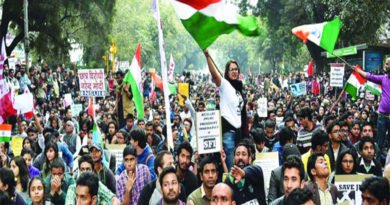Kashmir dilemma is deeply rooted
To overcome the gulf in Kashmir, everyone should understand one another so that the Government does not keep going round the mulberry bush
A Kashmiri acquaintance recently described the situation in Kashmir as a continuation of the Indo-Pak conflict by proxy. The soft locals fear that their Valley will soon be filled with outsiders, whereas tougher Kashmiris look at the abolition of Article 370 as an opportunity to prolong the fight.
At least from the time of Sir Syed Ahmed Khan of Aligarh fame, the belief that the British dispossessed Siraj-ud-Daulah of Bengal, Tipu Sultan of Mysore and Wajid Ali Shah of Awadh, has lingered. The feeling also is that when the British Crown left India, it should have the courtesy to “return it to us”. Homeland and New Medina was the cause of Partition. This was also MA Jinnah’s decoy for British ears in 1946-47.
Maulana Abdul Kalam Azad firmly opposed the partition of India because in a hundred years, India would have had a Muslim majority. In 1983, a Pakistani journalist visited Tehran to interview Iran’s religious dictator Ayatollah Khomeini, in connection with the celebrations around Pakistan Day, namely March 23. The interviewer’s final question was: What did Khomeini sahib think of Qaid-e-Azam Jinnah? The Ayatollah’s answer was: He was a brilliant man but could have benefited from vision. He should have been patient and his community would have gotten the whole of India, not merely its crumbs. But then, Jinnah was not a momin but a recently minted coin.
It is true that until 1935, Jinnah was widely called “the ambassador of Hindu-Muslim unity”, a term coined by Sarojini Naidu. In his presidential address on the eve of proposing the Pakistan Resolution in 1940, Jinnah said, “We know that the history of the last 1,200 years has failed to achieve unity and has witnessed India always divided into Hindu India and Muslim India. Muslim India cannot accept any constitution which must result in a Hindu majority Government; in combination with democracy, it would be a Hindu Raj which Muslims, cannot tolerate.
The Qaid’s other contention was that “Muslims are not a minority. Muslims are a nation according to any definition; they must have their homeland, their territory and their State.”
Dr BR Ambedkar wrote in his 1941 reply to Jinnah’s resolution: No one has expressed shock at the thought of separating Karnataka from Andhra, what then is there to be shocked in the demand for the separation of Pakistan? If it is disruptive in its effect, it is no more so than the separation of Hindu provinces such as Karnataka from Maharashtra, or Andhra from Madras. Pakistan is merely another manifestation of a cultural unit demanding freedom. There is nothing new about the resolution which merely resuscitates the scheme which was put forth by Mohammad Iqbal in 1930. Mr Rahmat Ali gave it the name Pakistan. After Iqbal, there is nothing new in linking the northwestern provinces.”
“Uncannily, there is nothing new in outing together many districts of Bengal and Assam into one province. Viceroy Curzon had done it in 1905. The British or the Anglo-Indian was not a nation; Indians’ referred only to the people of India.”
“French Orientalist Joseph Renan has written that a nation is a living soul, a spiritual principle. The Doctor continues: “The Hindus draw their inspiration from the Ramayana etc; whereas the Muslims derive their inspiration from the Quran and Hadith”. Thus, the things that divide and the things that unite, in Ambedkar’s opinion, there is no argument against the claim for partition if they insist upon it.
The Doctor quotes Lord Acton’s phrase that Pakistan is a soul wandering in search of a body. Ambedkar went deep into the subject and showed that the Indian army then was dominated in numbers by Muslim Punjabis, but their pay and perks were indirectly paid for by the Hindu provinces. He concluded by writing that in any case it is better to have the enemy outside the borders rather than inside.
To go back to the Kashmir problem, could it be that the Government in Delhi and the Governor in Srinagar are unable to relate to the Kashmiris who are of a different faith? They begin with God, move on to the Prophet and then to the scripture. On the other hand, we do not have a single authoritative book or Prophet, but are believers in karma. Their way of thinking, in the lingo of logic, is called deductive, which begins with a premise and ends with a logical conclusion, top down. Our faith is inductive and begins with ground realities to move upwards till it reaches a conclusion. A few scholars realise the huge gulf between the two categories of faiths, Abrahamic and Eastern.
The Abrahamic method of approaching the issue would be to shoot and kill, whereas the Eastern way would be to worry about the relationship between the two sides after the bullets and battles. This explains that we are an ancient civilisation and at the same time, have taken nearly 75 years to get down to grappling with the problem.
India and Pakistan were born as independent countries at the same time. Yet look at the difference in the distance covered by the two countries. To overcome the gulf in the Kashmir Valley, everyone should understand one another so that the Government of India does not keep going round and round the mulberry bush.
(The writer is a well-known columnist, an author and a former member of the Rajya Sabha. The views expressed are personal.)
Source: The Pioneer




